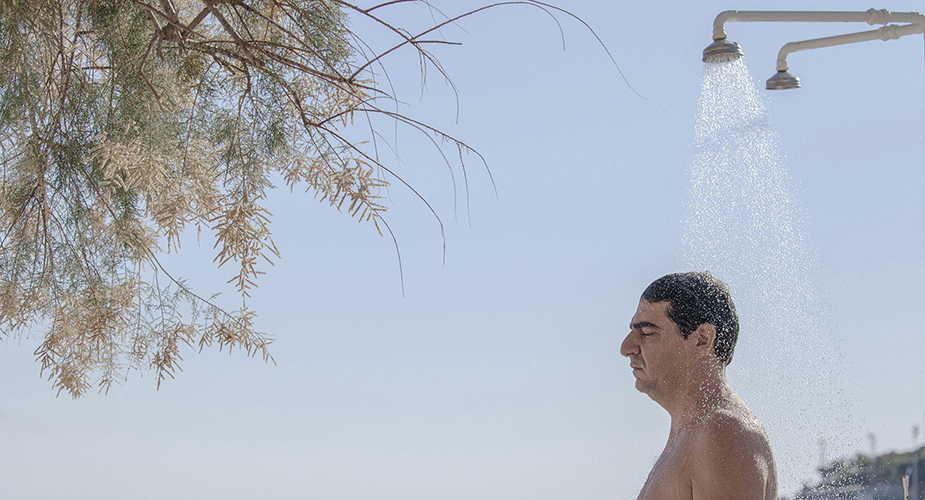Sundance Film Review: Pity
Film Reviews
Pity
Sundance Film Review
Director: Babis Makridis
As far as filmmaking goes, there may be something in the water in Greece. Director/screenwriter Babis Makridis’ and screenwriter Efthimis Filippou’s work in Pity converses with a similar vernacular to that of fellow Greek Yorgos Lanthimos. Sure, it’s dark—we can glean that from the film’s synopsis in Sundance’s programming. But Pity is on the level of “Why is this so good if it’s also this fucked up?” That’s when I know I’ve found a good drama that pierces through to my performance of watching it.
A man’s wife (Evi Saoulidou) is in a coma, having suffered what is referred to as “the accident.” He (Yannis Drakopoulos) relies on the small gestures of a neighbor, dry-cleaner and others to help him get through the grief he feels each day. He takes his son—whom he calls “the boy”—to visit his wife and tells her about his day. He’s a prosecution attorney who represents the victims of homicide. The lawyer finds common ground with the murder victims’ families and assures the assailants’ convictions. He cries each day in his bedroom, which the boy overhears. He takes none but important calls at work, where he also cries in his office. His secretary and others give their regards to both his wife and his son. He thrives on their pity, and seems almost to take pleasure in buying a black suit for his wife’s eventual funeral. He laments to his father that the family dog, Cookie, has lost her spirit on account of his wife’s absence. He chides the boy for practicing too chipper a piano piece, warning that the neighbors would think that they’re happy that the boy’s mother is in a coma if they hear such happy-sounding music coming from their apartment. He sings a funeral dirge he wrote for his wife—in full—to the boy. Then one day, he gets a call that his wife has awaken.
There’s a kind of dialogue delivery in Pity that’s strikingly similar to Lanthimos’ films. There’s not so much stilted dialogue, but it’s direct and frank atop crushing silence where there are stretches without any musical scoring. Everyone says what they mean and expresses what they want. There’s no stuttering or humming and hawing—lots of pointed statements and questions. A great example of this technique is when the man knocks on his neighbor’s door to inquire about more of the cakes she’d make for him while his wife had been in a coma. He expresses that he’s been thinking about them and wanted to see if she had a timeline for bringing him some. Though she has a bemused look on her face as she shuts the door, she nonetheless states that she hasn’t had time. It’s curt exchanges like this that, oddly, help to bring out the man’s growing, macabre obsession with sadness.
The man slides to a monstrous low. Drakopoulos delivers a wrenching performance as the lawyer. The psychological qualities of his straight-faced, serious comportment steady a character who’s ready to burst. He so convincingly falls into an addiction to sadness and pity—largely because of how subtly he sidles into it—that the film’s horrific climax is palpable. The whole cast acts well, too, and helps to execute the tension that allows Pity to explode from a character study to a surprising Hitchcockian story, albeit a somewhat abrupt one after its slow-burn phase. The act of crying in Pity becomes trance-like, a rhythmic somatic breathing in which the lawyer finds solace. The spare, stark, punctuating score and the text that reflects the lawyer’s psyche are deft touches that hint at the lawyer’s fomenting malaise, undertones that guide us to the satisfyingly depressing end.
There’s something to say about a film that depicts almost unwatchable acts that we simultaneously enjoy seeing for the sake of a compelling story. Director Babis Makridis demonstrates this skill while also using it as the main theme, obviously, for the film. Pity depresses us well—it’s a great movie. It’s difficult to watch, but see it. Just make sure to do something happy afterward. –Alexander Ortega
